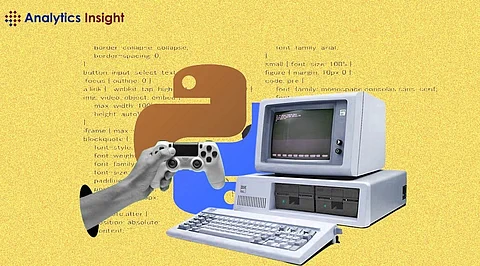

Python, known for its simplicity and readability, has become one of the most popular programming languages for beginners. Its clear syntax and vast ecosystem of libraries make it an ideal choice for those new to coding. By incorporating Python into game-based learning platforms, educators and developers have found a novel way to teach programming concepts while keeping students motivated and entertained.
One such platform that has gained attention in this space is "CodeCombat." CodeCombat is an online platform that gamifies the process of learning Python and other programming languages. Users navigate through a series of levels, solving coding challenges to progress in the game. The game mechanics, such as earning points, leveling up, and unlocking new abilities, mimic those found in traditional video games, making the learning experience more immersive and enjoyable.
The key to CodeCombat's success lies in its ability to strike a balance between entertainment and education. While players may be focused on defeating enemies and completing quests, they are simultaneously learning fundamental programming concepts such as variables, loops, functions, and conditional statements. By contextualizing these concepts within a game world, CodeCombat provides a hands-on learning experience that reinforces understanding through practical application.
Another example of game-based learning for Python is "Scratch." Developed by the Lifelong Kindergarten Group at the MIT Media Lab, Scratch is a visual programming language and online community where users can create interactive stories, games, and animations. While Scratch may not be as explicitly focused on teaching Python syntax, it introduces programming concepts playfully and intuitively, laying the foundation for more advanced programming languages like Python.
The appeal of learning Python through gaming extends beyond its educational benefits. For many beginners, the traditional programming approach can feel intimidating and overwhelming. By integrating Python into a familiar and enjoyable context like gaming, individuals are more likely to overcome initial barriers and stay motivated to continue learning. Moreover, the instant feedback provided by games allows players to iterate and improve their coding skills in real-time, fostering a sense of accomplishment and progress.
In addition to dedicated game-based learning platforms, there are numerous Python libraries and frameworks that leverage gaming as a means of teaching programming. For example, "pygame" is a set of Python modules designed for writing video games. While pygame itself is not a learning platform per se, it provides a hands-on way for aspiring game developers to apply their Python skills and create their own games from scratch.
Furthermore, the gamification of learning extends beyond programming-specific platforms. Websites like "Codecademy" and "Khan Academy" offer interactive coding tutorials and challenges that incorporate gamified elements such as badges, achievements, and progress tracking. These platforms allow users to learn Python and other programming languages at their own pace, with instant feedback and guidance along the way.
Despite the undeniable benefits of learning Python while playing games, it's important to acknowledge that game-based learning is not a one-size-fits-all solution. While some individuals may thrive in a gamified learning environment, others may prefer more traditional methods of instruction. Additionally, while games can effectively teach programming concepts, they may not cover all aspects of software development, such as debugging, testing, and project management.
Learning Python while playing games is not only possible but also an effective and enjoyable way to acquire programming skills. By leveraging the immersive and interactive nature of games, individuals can learn to code in Python while having fun and staying motivated.
Join our WhatsApp Channel to get the latest news, exclusives and videos on WhatsApp
_____________
Disclaimer: Analytics Insight does not provide financial advice or guidance. Also note that the cryptocurrencies mentioned/listed on the website could potentially be scams, i.e. designed to induce you to invest financial resources that may be lost forever and not be recoverable once investments are made. You are responsible for conducting your own research (DYOR) before making any investments. Read more here.
